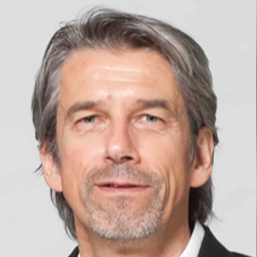
Consensus on diversity will not be reached anytime soon
The opinion contribution that ISW lecturer Lauren Buijs posted on Folia last week led to fierce reactions from supporters and opponents of his views. Central Diversity Officer Machiel Keestra tries to put things in perspective.
Diversity and diversity policy at the UvA have been the subject of great interest for years. At Folia, for instance, the diversity section is the second largest - after corona - with diversity enjoying a steady stream of articles and letters to the editor since 2011. In terms of content, those 118 contributions vary quite a bit. Topics include transgressive behavior, the lagging increase in the number of female professors, the change of Zwarte Piet, racism and discrimination, gender-neutral bathrooms, diversity training, research grants for underrepresented groups, support for students and staff with disabilities, social insecurity among students, and so on. Regardless of this wide variation, there are four points of contention in particular that regularly receive special attention both inside and outside the university. Just last month, Folia published several articles on the following topics: decolonization and inclusive teaching materials, diversity as something that goes beyond helping white women get jobs, it’s not just about being a "he" or a "she," and everyone being able to use the same bathroom, read: gender-neutral bathrooms.
Discomfort
The opinion contribution by Laurens Buijs - whom, incidentally, I invited to be a discussion contributor on Diversity Day just a few months ago - confirms this particular focus on just some of the many diversity-related issues at UvA. Using animal metaphors, he talks about diversity policy as “a Trojan horse” extending like an “octopus” in the UvA. In doing so, he mentions “woke” topics such as unconscious bias, microaggressions and decolonizing the curriculum, while the dark side remains undiscussed.
He describes how especially because of his expertise and contributions on homophobia and gender, he regularly faces condemnation or worse by people who disagree with his analyses and views. Worse, he argues that academic freedom at our university is at stake because unwelcome voices in the debate on diversity, such as his, seem to be silenced. This would be very undesirable but, in my opinion, there is less talk of silence - imposed or not - than of great discomfort and uneasiness regarding these issues.
Academic freedom
Of course, at a large university like ours, with some 50,000 students and staff, not all conversations about diversity are going to be equally amiable, and certainly on the points of contention mentioned, emotions sometimes run high. For a knowledge institution like ours, however, academic freedom should be leading in this respect, as Laurens Buijs also argues. But it should not surprise anyone that the concept of academic freedom itself has different interpretations. In the recently published book What is Academic Freedom? A Century of Debate, 1915 - present, Daniel Gordon describes these varying interpretations, which have arisen partly in response to all kinds of pluralism in science and society. Some views focus on the separation between science and politics, others argue that academic freedom and freedom of expression are largely overlapping, while there are also disagreements about dealing with different forms of media, for example.
Two years ago, the KNAW released a report on “Academic Freedom in the Netherlands” that proposes a guideline. This report limits academic freedom to the area of expertise of the academic in question and argues that this freedom comes with several responsibilities. For instance, academic freedom also presupposes meeting professional standards and values of research and argumentation. Another responsibility requires that we maintain a distinction between our scientific insights, on the one hand, and our opinions on possible political or policy views that might be based on them, on the other. As teachers, we have an additional responsibility. In that case: “scientists should, moreover, offer their students academic freedom in the form of a safe learning environment in which there is room for a diversity of approaches and in which discussions are conducted respectfully on the basis of arguments.”
Particularly when it comes to topics such as cultural and religious identity or sexuality and gender, it can be a challenge to use that academic freedom responsibly. This responsibility is all the greater because such topics are also personally sensitive. As a teacher, it is therefore especially important to explain to our students why these kinds of topics usually lead to a diversity of academic views and that consensus on them will not be easily reached. But in doing so, it is also important to respect distinctions between scientific views and opinions on politics and policy, even if this is not always easy.
Ugly monster
Given these standards, it is not correct, for instance, to argue that the debate on the existence of non-binarity could be scientifically decided, as Buijs suggests in several places. Also, dismissive statements claiming that non-binarity is “an ugly monster” and “a form of madness,” have no place in an academic debate on this complex subject. A difference of views and opinions thus leads to condemnation, doing a disservice to both the debate and relationships at our university. Instead, together we try to respectfully provide space for these forms of diversity, too, knowing that the last words have not yet been spoken on the subject.
Brave space
Ironically, contributions like Laurens Buijs' show what can unfortunately go wrong with this kind of discussion when academic freedom and responsibility are insufficiently respected. I fully agree with his view that we should together provide not only a “safe space” but also a “brave space” in which cross-thinkers and dissidents can express themselves, regardless of whether they advocate changes in our use of bathrooms or type of curriculum or oppose them. However, that still means that cross-thinkers, like all of us, should exercise academic freedom responsibly and respectfully in expressing their opinions. Since university diversity policy affects us all sooner or later, we will have to continue to call each other to account, but especially ourselves, on this balancing act between freedom and responsibility and work towards a respectful dialogue with each other.


